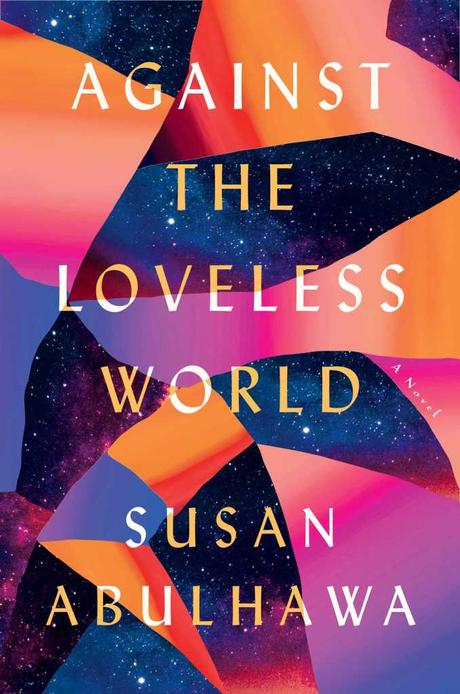I wanted to like this book more than I did, and I almost didn’t finish it. But my book club had so many good things to say about it, I persevered — though I ended up with mixed feelings.
The story is about Nahr, a woman living in solitary confinement in an Israeli prison. She grows up in Kuwait, with her mother and grandmother who are refugees from Palestine, longing for their former country, forced to flee from one country to another. As a young woman Nahr must flee with her family from Kuwait to Jordan, and later ends up discovering her family history in Palestine.
Nahr endures quite a bit when she marries young, is abandoned by her husband and then lured into prostitution. I appreciated Nahr as a young character who slowly gains strength and conviction, though many in my book club felt the book took a long time to develop her.
I liked the first half of this book. However, as the book went on, what troubled me was the one-dimensional way that all Israelis were painted. I’ll admit my bias here. My father grew up in Israel in the 40s and 50s, as a refugee of the Holocaust. In this book, my father’s family are portrayed as villains who callously took over the country, forced out all the Palestinians, and then took their homes and land. It made me uncomfortable, as I’m used to seeing my father’s family as survivors, not as oppressors.
But I’m not naïve, and I’ve often been uncomfortable with what I know of Israel’s history. What bothered me about this book was that no Israeli is characterized with any nuance; they are nameless and faceless. The author, narrating the audiobook, has her characters sneer at “the Jews” again and again. Every Israeli in this book is corrupt and evil, and not a single Israeli character is portrayed with thoughts or feelings.
I had trouble expressing this to my book club, because I said it should be more “balanced” which was heard as “both sides should be portrayed equally” (like Trump’s “there are good people on both sides” talking about white supremacists). But that’s not what I meant. A story about oppression doesn’t have to balance both sides – it just should have some characters on both sides that are portrayed as human beings. I would say the same thing about a book about Nazis, or slaveowners – it’s not that the behavior is reasonable, it’s that an entire body of people shouldn’t be portrayed as inhuman, even if many of them behave that way. (Chanel Cleeton’s The Most Beautiful Girl in Cuba is similar with regards to the Spanish, now that I’m paying attention to it.)
I’m clearly being touchy because of my own family history. This book forced me to think about my own family’s role in the oppression of Palestinians, and that’s a good thing. But I also think Abulhawa’s resentment and anger towards the Israelis, while justified, prevented her from developing characters that felt real.
Here’s an example of a place where this book lost me. There’s a scene where Nahr goes to her mother’s childhood home in Palestine, now occupied by Jews. She and her friend discover a fruit tree she grew up hearing her mother talk about. She’s overwhelmed by sadness for what her mother has lost. Then an older woman who lives in the house comes outside and is understandably concerned about two strangers picking fruit from her tree. When she confronts Nahr, I thought, what does this woman know about the house she’s living in, or the plight of its former residents? Is she nervous about the intruders, or does she only see people she hates because they are Palestinians?
It’s an interesting moment. At that point Nahr could have explained who she was. Instead, she viciously beats the woman for no reason, and then she and the friend laugh as they drive home about how “scrappy” Nahr is. As a character, Nahr is vulnerable in the first part of the book, uncertain where she belongs. In the second part of the book, I found her arrogant.
One of the most interesting things about this book could have been the question of when it is justifiable to physically harm people in the fight for one’s freedom. Where is the line between fighting for a cause and becoming terrorists? I didn’t see this book wrestling with that issue.
The later part of the book does get better though, as Abulhawa tells a slow-paced love story about two people who are both broken in a lot of ways, and they gradually unfold themselves to each other in a way I found moving. I also liked the way the author brings in the work of James Baldwin about race and oppression and love (the title of this book is from a quote by Baldwin).
My book club also found the prison aspects of the story fascinating, as did I. Abulhawa creates a fictional, high-tech prison reminiscent of an Orwell novel, and she explores the impact of many years of solitary confinement on her once “plucky” heroine. Nahr has to recreate herself to survive, as do captives in other situations I’ve read about. Her body becomes conditioned to the prompts she’s limited to in prison: food, hot water, the occasional guest.
Overall, the book left me with mixed feelings, but it did give me a lot to think about.


